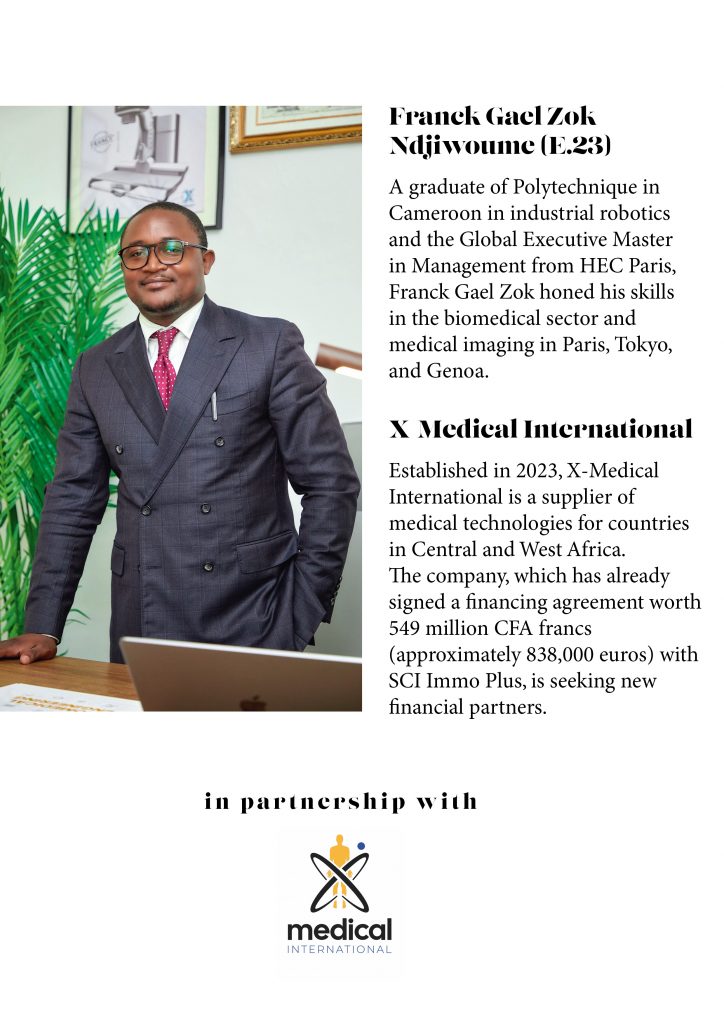Democratizing Healthcare in Sub-Saharan Africa

X Medical International is developing an innovative financing strategy to expand medical equipment. Meeting with Franck Gael Zok (E.23), its CEO.
What are the specific healthcare needs in Cameroon?
F.G.Z.: Today, very few people have access to diagnostics and healthcare due to under-equipped medical facilities. In Cameroon, there is only one scanner for approximately 250,000 inhabitants. And an MRI costs 350 euros, in a country where the minimum wage is less than 50 euros. Only very wealthy individuals can afford these tests. Vulnerable populations are condemned to death due to their inability to afford an MRI. The lack of medical equipment stems from the difficulty that healthcare facilities face in accessing bank credit. That’s why X Medical wants to offer these devices to public and private hospitals on a SaaS model.
Are there significant geographical disparities between countries and regions?
F.G.Z.: Yes, there are many medical deserts. Sometimes you have to travel thousands of kilometers to undergo a test. In the Central African
Republic, where we intend to open our first branch, there are only two scanners for the entire population, no MRI, and only one hemodialysis center. To get an MRI, a Central African must go to Cameroon or the Democratic Republic of Congo. However, the cost of air travel in Central Africa is very high. NGOs have basic equipment such as X-ray machines, but MRIs represent too significant an investment. Even in Cameroon, which is the best-equipped country in the sub-region, there are medical deserts: out of the 58 departments, some do not have a scanner.
What financing solutions do you propose to develop medical equipment?
F.G.Z.: Our triple impact strategy (social, economic, and technological) called “Ambition 2026” aims to improve the quality of care by helping the government and healthcare professionals access this equipment, and by facilitating equipment installation, professional training, and after-sales service. For this, we have developed a financing system based on long-term investors, such as healthcare investment funds, who understand our challenges.
Is the development of healthcare a priority for the government?
F.G.Z.: Yes. In Cameroon, political will is indeed moving in this direction. A year and a half ago, President Paul Biya launched a program called “Universal Health Coverage,” which makes healthcare accessible to a larger portion of the population. Furthermore, legislation encourages investments in the healthcare sector: for the past four years, the financing law has stipulated that all medical equipment goods are exempt from customs duties and VAT.

Published by Mary Bou Rached

